Lt. Col. Jim Carafano on the State of Play in Ukraine
25 Mar 2022
BUCK: War in Ukraine is raging still, if anything getting worse with each passing day. The toll on Ukrainian cities and civilians increasing. A lot of reporting this week on estimated Russian casualties. Some major hits the Russian military has taken. Are they starting to lose ground? Is the Russian war machine meeting opposition that could even turn the tide? We want to talk to our friend, Jim Carafano about this. He is an Army veteran and is a vice president at the Heritage Foundation on defense policy and national security. Jim, great to have you.
CARAFANO: Hey, thanks for having me on the best show on radio.
 BUCK: Thank you so much, sir. You have excellent taste in radio, among other very, very sound judgment.
BUCK: Thank you so much, sir. You have excellent taste in radio, among other very, very sound judgment.
CLAY: Amen.
BUCK: So, tell us, Jim, I mean, what are you seeing just right now, from the 30,000-foot level. I mean, looking down on the battlefield in Ukraine. How is this going, versus what the West expected, and what Putin was hoping for?
CARAFANO: Yeah. I think it’s very clear the Russians are not going to reach their maximum strategic objectives. And even if they introduce tactical nuclear chemical weapons, I don’t think that’s in the cards. It’s very clear that as long as the lines of supply are open to the West — which I don’t think the Russians have the capacity to close — and the West keeps funneling resources in, that the Ukrainians keep fighting. 300,000 Ukrainians have gone back into the country in the last couple of days to fight for Ukraine. That’s bigger than the entire invading force that the Russians have. So, we’re going to wind up, I guess, at some point where the — this is going to come to an inconclusive conclusion.
Now, the fighting will only stop when the Russians and Ukrainians decide. Because they can both fight forever. I mean, as long as Ukraine gets aid from the West, which I assume won’t stop — they can keep the pressure on the Russians. And, of course, the Russians can fight forever. They just go back to Russia, rearm, and come back again. So, the actual fighting will stop, when the two sides (cell drop)…
 We’ll see what that has for the future. But there is no decisive victory, unless something dramatically — you know, never say ever in war. I’ve been in the military for 25 years. Been doing this for 20 years of analysis and written history books. So, I would never be, well, this is what’s going to happen. But that’s the state of play on the ground right now. And I think both sides recognize that. We even saw some recent Russian, announcing to the military, talking about our objectives. And the objectives are not about — no longer about — conquering all of Ukraine. They’re about really consolidating their control on gun buys.
We’ll see what that has for the future. But there is no decisive victory, unless something dramatically — you know, never say ever in war. I’ve been in the military for 25 years. Been doing this for 20 years of analysis and written history books. So, I would never be, well, this is what’s going to happen. But that’s the state of play on the ground right now. And I think both sides recognize that. We even saw some recent Russian, announcing to the military, talking about our objectives. And the objectives are not about — no longer about — conquering all of Ukraine. They’re about really consolidating their control on gun buys.
CLAY: So, Jim, thanks for coming on. We’re a month in, uh, basically. What’s the time frame in your mind? You say it’s hard to project. Certainly, there can be unexpected outcomes. But what’s your time frame in your mind, if you’re looking forward, as to where when there might be a cease-fire, a negotiated settlement? What are we looking at as we move further into the spring, as you analyze the situation on the ground?
CARAFANO: Well, look, it doesn’t get any easier for the Russians. Because Ukraine is a very flat country. And it gets very wet. And it’s very difficult to operate off-roads. So, you go from essentially freezing, unbearable conditions, to conditions in which armored truck vehicles really can’t maneuver off road. So Putin is publicly saying he wants this wrapped up by May 9th, which is the anniversary of the Russian victory over Germany.
But I don’t see how things get dramatically better for Putin between now and May 9th. We also have to point out, the one thing the Russians are good at, is killing innocent civilians and destroying their lives and livelihoods, and flattening their communities. A quarter — at least a quarter of the Ukrainian population has already been displaced. That — that number can only grow over time.
BUCK: Jim… We’re speaking to Jim Carafano, an Army veteran and Heritage Foundation vice president for national security studies. Jim, the Biden administration’s response to this and the overall NATO response to this. This is one of those issues are where we all that matters is what should be done. It shouldn’t be first and foremost about scoring political points or anything like that. What are they doing right? What are they doing wrong? What should change?
CARAFANO: Well, the number one thing that they’re doing right is they’re continuing to supply the Ukrainians. And as long as they do that with intelligence support and military aid and water and food and medical supplies. And they’re taking care of refugees. As long as they do that, that’s the most important thing, and that’s keeping Ukrainians in the fight. But the question is, where do we go from here?
And there’s two questions which is, what happens to Ukraine? And, look, wherever that winds up in the end, if Ukraine does not have a demonstrable capability to defend itself in the future, and ward off the Russians, whether that’s part of an alliance or whatever, then this is just the war before the next war. But the other question is for NATO. If NATO doesn’t essentially disarm the Russian threat, which is two things — military and energy — then, again, this is just a crisis before the next crisis.
 Because Putin will rebuild his military and arms, and he’ll be back again. I’m not optimistic on either. So, they’re deploying battle groups. This is a couple hundred people. Putin deployed ten times that number, in the first wave of the attack on Ukraine. These are just speed bumps. If we’re going to — if we’re going to delegitimize a future military threat with Putin, then we have to have enough capability forward deployed in NATO. So, it’s not just like, if you come across this line and kill somebody, we will be at war with you.
Because Putin will rebuild his military and arms, and he’ll be back again. I’m not optimistic on either. So, they’re deploying battle groups. This is a couple hundred people. Putin deployed ten times that number, in the first wave of the attack on Ukraine. These are just speed bumps. If we’re going to — if we’re going to delegitimize a future military threat with Putin, then we have to have enough capability forward deployed in NATO. So, it’s not just like, if you come across this line and kill somebody, we will be at war with you.
It’s like, everybody that crosses that line, we will kill them. So, that means you have to have really substantial forces to deploy. I’ve not seen that from Biden or anybody else. And, of course, the other thing is energy independence. We all have to have viable, affordable, abundant energy, that doesn’t rely on buying fuel from our adversaries. And I haven’t seen that either. As a matter of fact, Biden doubled down on renewables.
Anybody that knows anything about renewables knows, one, it’s actually not gonna solve — do anything for the climate — it’s just not. The second thing is it can never deliver a reliable energy grid. The third is that you have to be dramatically subsidizing these things to get power down to a responsible level. So, they’re bad from an economic standpoint. They’re bad from an environmental standpoint. And they’re never going to deliver energy independence. So, when somebody says, “My answer is, we’re going to double down on renewables,” that just tells us that you’re not serious.
CLAY: Jim, one of the big topics, obviously, is the negotiations that are going on right now and what those might look like. Simultaneously, while those negotiations are going on, there are still reports that Russia is trying to execute Zelensky. I don’t remember in my experience, you may be able to contemplate it, when you have been ostensibly negotiating with a government led by a man that you are publicly trying to assassinate. Can you think of any comparable situation there? And do you believe the Russian attempt to kill Zelensky is still ongoing and as robust as it was reported to be early in the days of this invasion?
CARAFANO: I mean, I wouldn’t be surprised if they were still trying to assassinate him. Because this is just part of the Russian playbook. And they routinely do these things, because that’s part of their playbook. Look, the reality here is there is no trusted deal with Putin. Putin only respects force. So, he will pay attention to what people do, not what they say. The problem with — particularly with the Biden approach to foreign policy is he wants people to listen to what he says, so he can do as little as possible. So, until we start dealing with Putin in a way that he respects and understands, which is recognizing that there’s force there to prevent him from doing something. No matter what he agrees to. No matter what kind of deals he makes. It’s just a prelude before he stabs you in the back.
BUCK: And, Jim, where do you see this going? Are both sides… You say that if Ukraine and the forces fighting against Russia there, continue to be supplied, and it looks like that is going to happen. There seems to be, if anything, an increase in the desire of the West, to supply the Ukrainians. Now that we see they’re willing to fight. I think people saw the situation in Afghanistan which was a debacle for the Biden administration in many ways. But also, the unwillingness of the Afghan Army to fight against the Taliban.

And maybe had a moment of, “Oh, gosh. What’s gonna happen here in Ukraine?” Now that we see that the Ukrainians will fight and are fighting, and standing up to Russia as much as they can. They are getting equipped. They’re getting the arms that we’re sending them. They’re using them to serious effect. Where do you see this going? I mean, does it turn into a negotiated settlement in 30 days, 60 days? Is part of Ukraine in Russia’s hand at the end of this? How does it end?
CARAFANO: Well, like I said, today, based on what we know right now, this is going to end in a frozen conflict. The actual fighting will subside when both sides think it’s to their advantage to do that. The deal that they cut, it depends. If it’s just a deal that has all kinds of like nonsense, guarantees, processes and stuff. Then what Putin will do is he’ll go back, he’ll rearm, and rebuild. And he’ll come back when he’s ready again. And he’ll take another bite at the apple. And we’ll have another war.
On the other hand, and you have to remember, no matter how this ends, win, lose or draw, Putin’s military is going to be exhausted. I mean, they’re going need to months, if not years, to rearm and reconstitute before they can go back and start invading other people again. In that time frame, there’s a window where you really can’t threaten anybody militarily.
And pretty much, NATO can do what it wants to shore up its defenses and its energy. So, the next time Putin comes back, we’re armed against them. So, however this ends, if in that interim period, you don’t accomplish two things. One is, figure out a way that Ukraine can defend itself against a future Russian invasion. And, two, get to energy independence and have sufficient military capabilities forward deployed in NATO to deter Russia in the future. Then we just go back to where we started.
And people have to remember too, this is all about China. China wants a weakened, divided, and distracted Europe because that helps it isolate America. And so, the Russians are the Chinese stalking horse. So, regardless of how these end, the Chinese are going to help the Russians, get back on their feet so they can pressure Europe again, because that’s good for China. And so, for people who are really concerned about, well China’s the real enemy here — I don’t argue that — the way you diminish China, is you stiff-arm Russia ever having the capability of threatening the West again, with military or with energy. That significantly diminishes their value to China as an ally.
CLAY: Jim, seven to 15,000 deaths, according to NATO estimates, among Russian forces. 40,000 wounded. You just talked about how Russia is significantly going to take a long time to rebuild. That doesn’t consider all the material — war material — they’ve also lost. Whether it’s planes, whether it’s tanks, whether it’s movable forces, all of these different things. Has Russia rendered itself relatively impotent by, yes, granted they invaded Ukraine, but by being unable to live up to the expectations of what we believe the Russian military was capable of? Is this very much of an empiric victory, regardless of how they try to claim it when a negotiated settlement happens, just based on how they performed?
CARAFANO: Well, look, Russia can always — remember, you’re an authoritarian regime. You can always rearm and rebuild your military. You know, if you’re smart, you can learn your lessons from last time and improve. Because now they have more combat experience. But we have to remember, regardless of the state of the Russian military — first of all, if you count their tactical nuclear weapons, they have the biggest nuclear arsenal in the universe, that we know of. That’s a problem.
And despite all the short force in the military, they’ve shown that they’re very good at something. They’re completely ruthless. They’re very good at killing innocent unarmed people, and they do that really well. And they can destroy lives and livelihoods and communities and buildings and infrastructure. So, as long as that military is in being — and as long as Putin is in charge of it. It is a dark shadow over its neighbors in the West.
And you have to be prepared, to make sure Putin understands, that in the future, anybody that the Russians attack, that those attackers will die and never come back. And that’s the only thing that’s gonna — and the reason why this war started is because Putin didn’t believe that. He recognized something — he expected to win this war in two days. And then he expected everybody to just look at — avert their eyes, and go back to sleepwalking through history.
We have learned now if Putin could look at the future and knew where he would be today, I’m not sure he would have invaded. If he knew that NATO was — that countries were going to arm the Ukrainians. That the Ukrainians were going to fight. That the economy was going to get hit… If we did the thing nine months ago what we’re doing right now, I don’t think he would have attacked, and I think that’s pretty obvious.
I think it was obvious nine months ago, actually. Putin respects force. And so, if you do not demonstrate the capability and willingness to stand up to him, he will always come back and try. Has anybody ever seen a bully in a schoolyard? And where they went to the bully and said, please don’t hit me. Who didn’t get immediately smacked in the back of the head when they turned around?
CLAY: Yeah.
CARAFANO: And Putin is a bully, it’s just that simple.
BUCK: Jim, thank you so much for joining us. Jim Carafano of the Heritage Foundation. Talk to you soon, Jim.
CARAFANO: Hey, thank you so much. Thanks for having me on.
Recent Stories
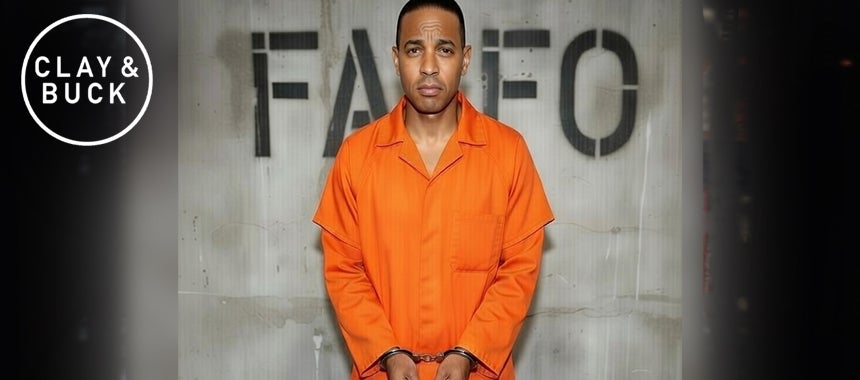
Don Lemon Arrested for Minneapolis Church Attack
Clay and Buck react to the Lemon indictment -- and they have the same take.
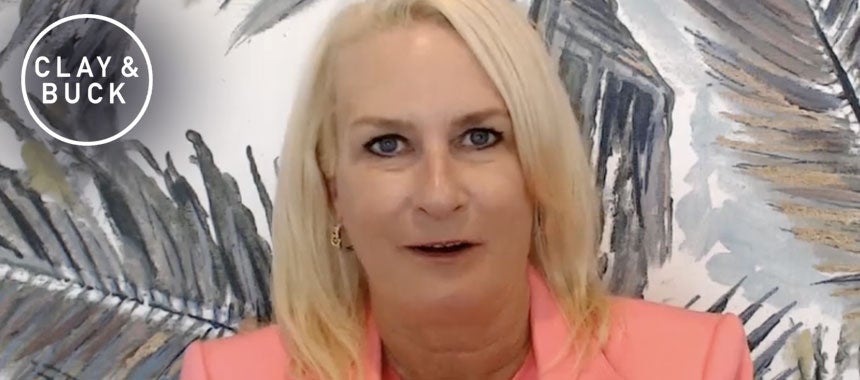
Julie Kelly Shares J6 Parallels to the Don Lemon Indictment
Nobody but Julie Kelly will tell you that "journalists" were charged for January 6th offenses.
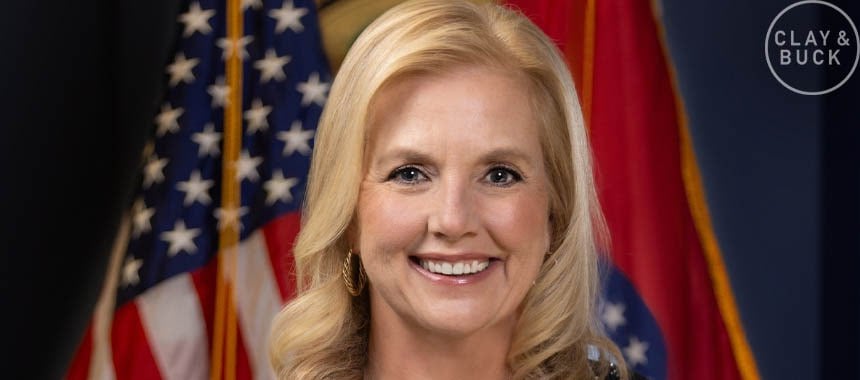
"Hijacked Representation": Missouri AG Explains Her Census Lawsuit
Catherine Hanaway's suit to stop the counting of illegals in the census.
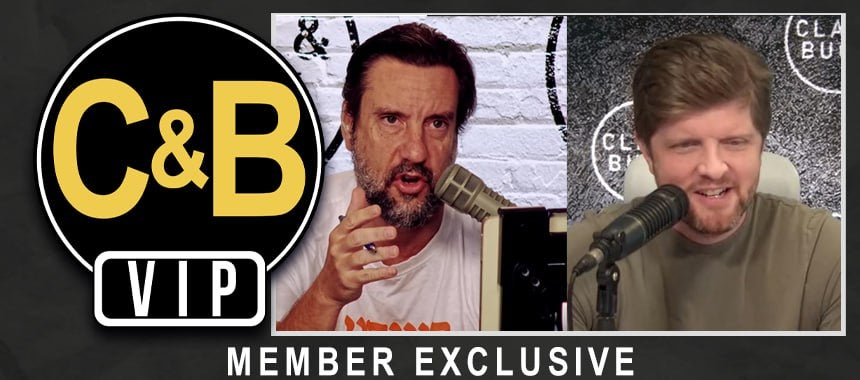
VIP Video: Journalists Fly Soviet Flag at Half Staff for Don Lemon
Clay and Buck break down some of the most histrionic media reactions.
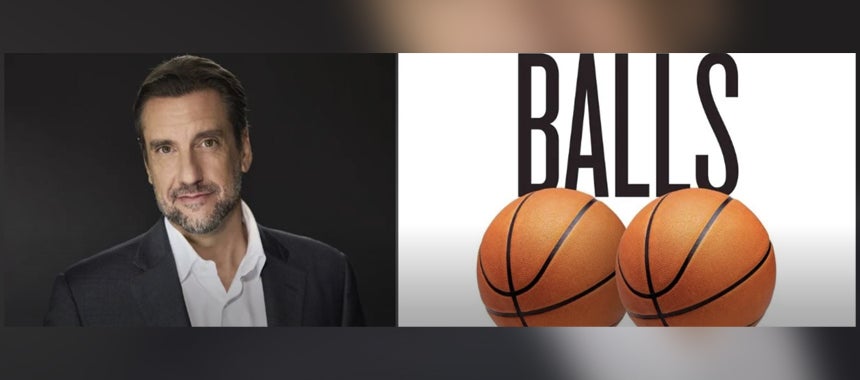
From ‘Balls’ to Broadcast: Clay Reflects on Media, Writing His New Book, and His Future
Check out Barrett Media's profile piece on Clay.





